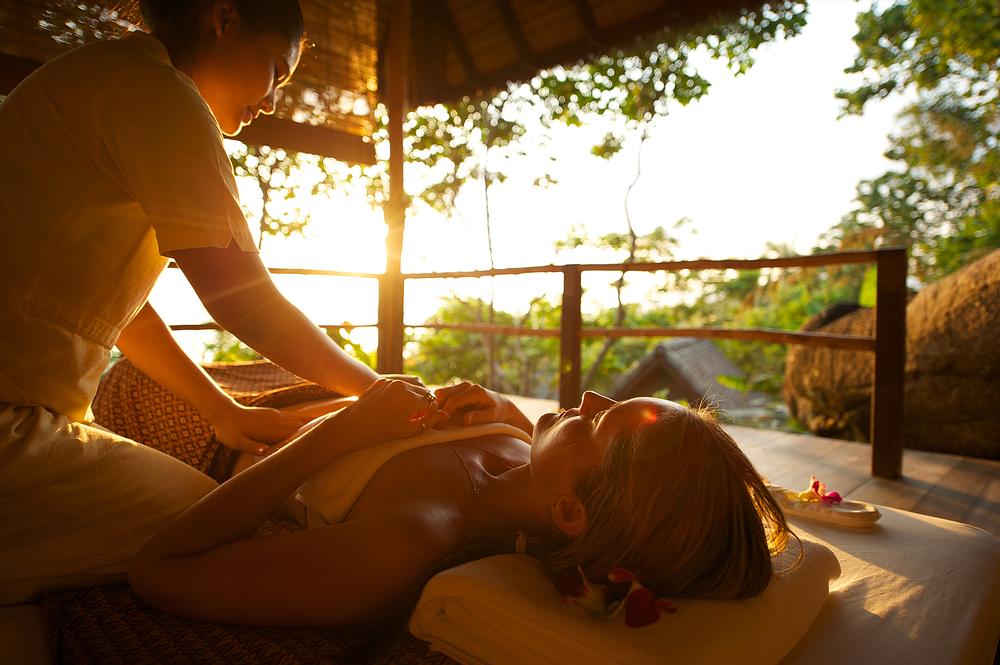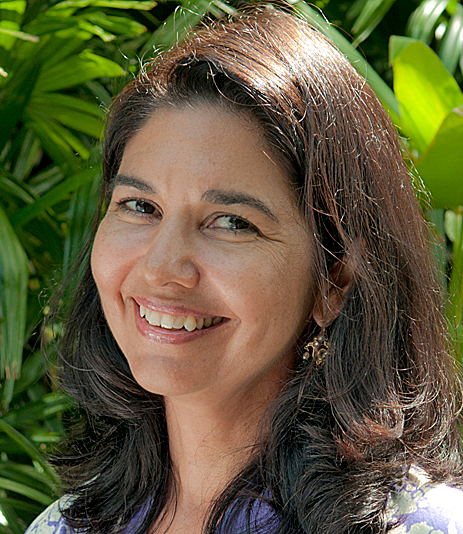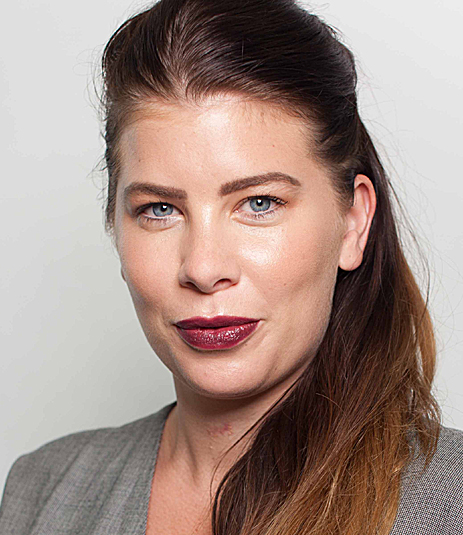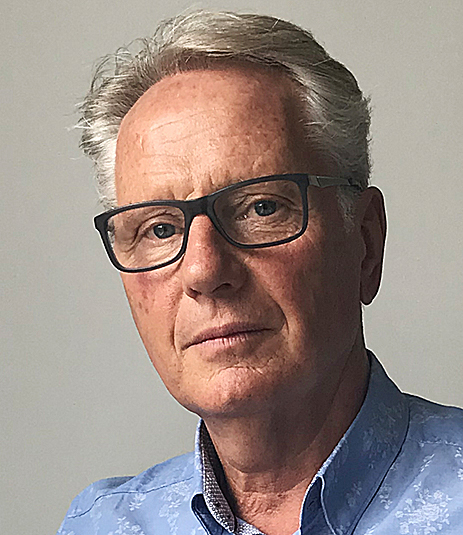 SELECTED
ISSUE
SELECTED
ISSUE
|
|
Leisure Management - Democratic wellness

Everyone’s talking about

|
|
| Democratic wellness
|

Seen as a caring industry
and one which looks after
the wellbeing of people, is
it incumbent for spas to
devise wellness offerings
which are accessible to all
socio-economic groups,
rather than the top tier?
Kath Hudson investigates
|


Kamalaya is working hard to extend its benefits to a wider audience
|
|
|
While the benefits and experience offered by the wellness industry is something everyone could enjoy, at the moment the high price point means the industry is only able to reach the elite few who can afford the destination spa prices.
For its own health, does the industry need to broaden its reach beyond its current restricted market and is it possible to become affordable without hitting the bottom line hard, or treating therapists unfairly? With their high personal touch, how can spas be brought into the mainstream without losing their essence? After all, the reason the industry has become a luxury proposition is because of the cost associated with its deep programming.
And what is an affordable price? Kevin Kelly, who curated the price-accessible wellness resort, Civana in the US, believes a quality, cost-effective 60-minute massage should be priced at US$99 (€90, £30). This figure is based on a balance between a fair wage for the practitioner and affordability for the customer. “This is still a push, but possible for a monthly, or bi-monthly, investment in wellbeing,” says Kelly.
So what is the way forward for the industry? Should spas democratise their services, or keep going as they are? Is more education needed to prompt people who don’t currently invest in their health to review their spending priorities? Is different marketing needed in order for people to feel wellness is for them? Or do we need different business models? Different products and services? Dynamic pricing? Or could technology provide the answer? We canvass opinions from those in the industry
|
Karina Stewart co-founder, Kamalaya Wellness Sanctuary and Holistic Spa

Karina Stewart
I’m definitely in favour of making wellness available to more people. It’s not a luxury, and is increasingly needed by everyone. However, at the same time, most businesses working in the industry are not charities, philanthropic endeavours or educational institutions, so they need to look after the bottom line and cannot afford to drop their price point.
The Kamalaya experience was costly to both create and deliver, but we’re keen to do what we can to extend the benefits to a wider audience.
Our first tool to broaden the reach of our offering is to look after our community, with a number of initiatives for our staff. We run workshops and health lectures biannually, give away an average of 70 treatments a month to our team and allow access to the fitness facilities and restaurant during off peak hours, subject to availability.
Secondly we focus on outreach programmes and have created bitesized videos giving tips on healthy living and cooking, for social media platforms. Also we regularly travel the world to give talks and tasters – taking pop-ups into the community is a great way to democratise wellness.
"We’ve created bitesize videos giving tips on healthy living and cooking for social media platforms"
Although I will always prefer the human touch and a heartbeat, technology can play an important role in bringing our industry to a wider audience, by educating people and forming good habits, for example with meditation apps and online fitness programmes.
Education is vital to democratising wellness and needs to happen simultaneously with affordability. Unless people understand the benefits, they won’t see the value in our services. Once individuals have the motivation to look after their health they will start to realign their spending priorities.
Karina Stewart launched Kamalaya in Koh Samui with her husband, John, in 2005. It’s one of the leading destination spas worldwide

To broaden its reach, Kamalaya offers staff 70 free treatments a month
Kevin Kelly CEO, Civano Development

Kevin Kelly
The in-depth science, service and alternative programming associated with a luxury spa is justified and meets the value proposition. However, 90 per cent of the travel market is being underserved, and this provides a business opportunity to address an unmet need in a larger marketplace.
Technology could be the driver for this and could help grow the market by allowing the collection of data to build algorithms, to make a business more efficient. The more data an operator can collect on their customers, the more targeted and accurate they can be with their marketing. This makes the whole operation more cost effective and means there’s potential to lower price points.
To date, the way the industry has made services more affordable is to compromise the experience, but instead, the efficiencies of technology should be used to bridge the difference between low price experience and high price experience.
"Ninety per cent of the travel market
is being underserved, and this
provides a business opportunity"
The old rules of market segmentation used to be along an income scale, but wellness is so broad, that operators should be looking at values system alignment, and not income: people who value their health and shop at whole food shops fit into lots of different economic strata. My daughter is in a different income bracket than me, but shares my values. In three job moves she’ll be in my market segment, so why would I lose her today?
Kevin Kelly created Civano Development to consult on sustainable and wellbeing real-estate projects, including the affordable Civana resort concept in Arizona
Melissa Evans group spa manager, Spa Experience by Better

Melissa Evans
Better is the operator of a chain of nine UK spas in the public sector which are run on a not-for-profit making basis. This is a sideline for the company which operates a number of leisure centres previously run by local government.
Our aim is to make the day spa experience more accessible and affordable to a wider demographic. We want more people to view coming to the spa as a lifestyle choice, rather than a rare treat or off limits altogether.
We offer a membership which, on a concession basis, can be as low as £9.50 (US$12, €10.68) for people living locally on a low income. These have been popular and some members come twice a week for the thermal spa experience, where they have access to a range of spa facilities and relaxation lounges.
In terms of therapist training and product quality, our treatments are comparable with those offered in the private sector, but the price point is lower. A full body scrub in the hammam is £15 (€17, $18) and a 60-minute massage is £60 (US$74, €68) or £48 (US$59, €54) outside urban areas. We find there’s about a 50/50 split between the thermal spa and the treatments in terms of revenue.
"We offer a membership which, on a
concession basis, can be as low as £9.50
for people living locally on a low income”
Despite charging less, all of our spas make a healthy bottom line. However, since we are a non-profit making trust we don’t have the pressure to make large profits. Our spas are also busier than most private spas, which is a compromise for users.
Making spas more accessible to different people doesn’t just come down to pricing: they can be intimidating environments to those who have never been.
Going forward, spas could look to break down some of these barriers. This could mean reassessing the look and feel of the marketing material and marketing in different places.
Before running Better’s public sector spas, Melissa Evans managed spas in leading hotels in the Middle East
Jean-Paul Blisset director, Melt Design Hub

Jean-Paul Blisset
It is possible to democratise wellness, but there needs to be the will, the desire and the imagination.
At the moment there’s too much focus from hotel owners on building premium spas. Once a facility is pitched at such a high level it becomes difficult to drop prices. Even so, there may be opportunities to open them up to a wider audience with dynamic pricing/cheaper offers in quiet times and partnerships with social enterprises, charities or healthcare providers.
While it might be difficult to offer treatments at cheaper prices, facilities could broaden their reach through economies of scale – by offering group sessions in activities such as pilates or meditation to the wider public at a lower price (especially during quieter periods).
Going forward, new concepts will broaden the market and challenge the dominance of hotel spas. Melt Design Hub is already working on concepts for urban environments which don’t have the overheads of a big hotel and so can potentially offer a more affordable price point. Neither a gym, nor a spa, but something in between, they will expose more people to wellness and could deliver relatively affordable services by offering health optimisation, integrating bio-hacking, as well as supporting people to improve their diet and lifestyle.
"Going forward, new concepts will
broaden the market and challenge
the dominance of hotel spas”
Another concept we’re working on in the UK in association with doctors in the private care sector is wellness villages within retail complexes. These 2,000sq m facilities will encompass a broad range of services including primary care, bio-hacking, rehab, physio, related retail and wholesome food that are available to a wider range of people/patients who prioritise their health.
I would like to think we could stop this constant race for the premium. There’s definitely room for intelligent, good quality wellness at more affordable prices.
Jean-Paul Blisset has worked in the leisure field for over 30 years and includes Chiva-Som and Six Senses among his clients
|
|
 |
| Originally published in Spa Business 2019 issue 4
|
|
 |
|